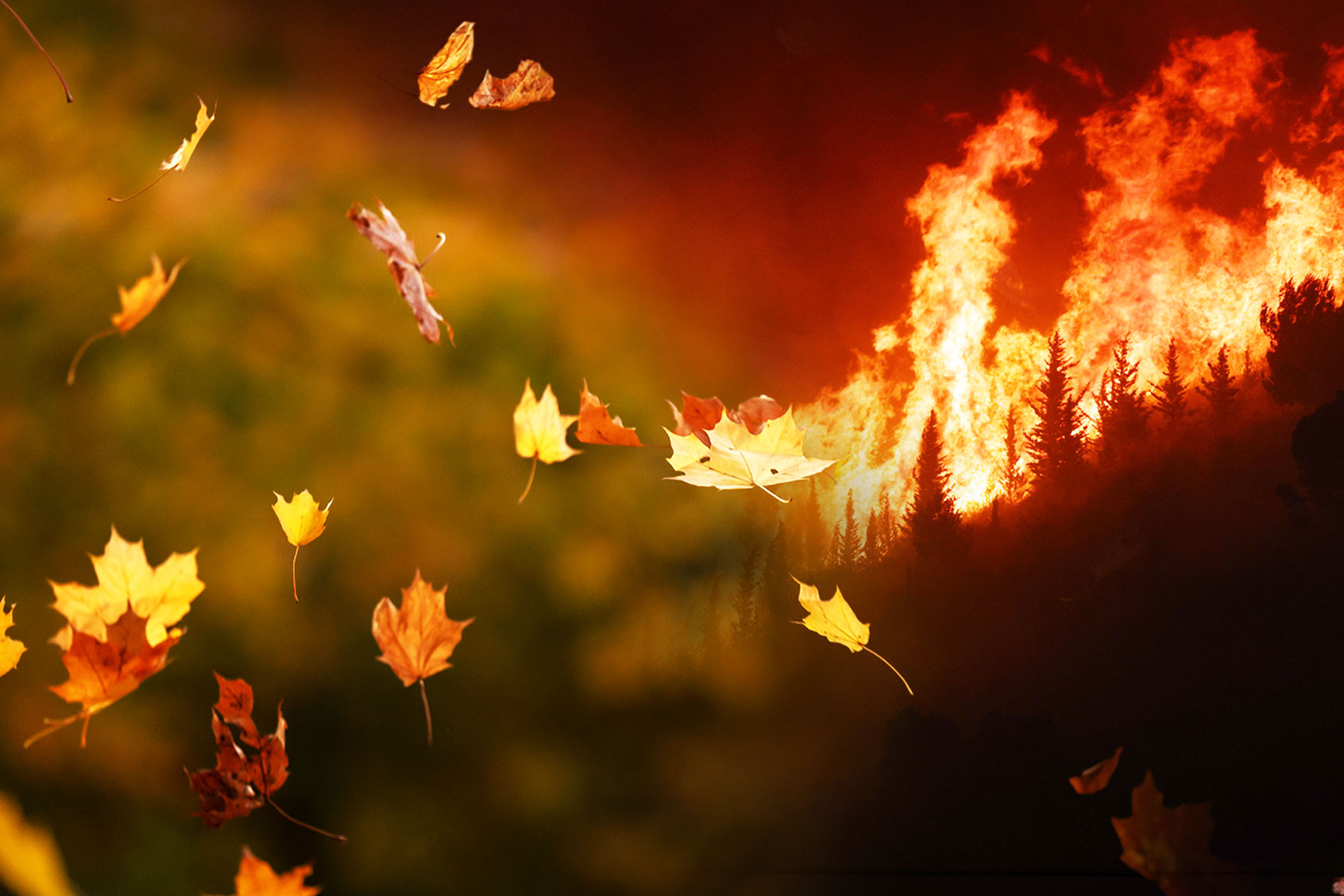One of the great pleasures of autumn is its colorful aesthetics. The phenomenon in which normally green leaves transition into shades of red, orange, yellow and eventually brown is known officially as "leaf phenology," which some people eagerly anticipate each year. But like many ways in which climate change is radically altering our weather patterns — from blistering heat waves to sea level-induced floods — autumn itself is changing.
"Climate change and global warming is not inconsistent with snow at all, and in fact you may actually get more snow."
According to a study published earlier this year in the journal PLOS One, the season length is growing, meaning that it is taking longer for leaves to change their colors. And this is not the only way in which climate change is messing with the season so many of us love.
"It's trees are holding onto their leaves longer," explained Dr. Howard Diamond, senior climate scientist at NOAA's Air Resources Laboratory, when speaking to Salon. "I can see that in my own neighborhood, where I can remember 20 years ago the leaves would drop a lot sooner than they do now. That's more anecdotal, but it is backed up by research that we're seeing."
Climate change isn't just causing the leaves to change later. We can also expect later frosts, according to Dr. Michael E. Mann, a professor of Earth and Environmental Science at the University of Pennsylvania. Mann told Salon that "means that mosquitos and disease-carrying pests like ticks persist further into autumn, posing a greater health risk to us."
Mann also pointed out that El Niño — the climate phenomenon in which the ocean surface warms in the central and eastern tropical Pacific Ocean and thereby alters weather patterns — is going to set a new record for global temperatures every year in which the event happens. This means more extreme heat in the summers, as well as worsened tropical storms and intensified droughts.
As Dr. Kevin E. Trenberth, a distinguished scholar at the National Center for Atmospheric Research, told Salon by email, "This year there is a major El Niño underway and in strong El Niño conditions there is a strong tendency for a southward shifted jet stream across the U.S.: storm track favored further south than usual and wetter through to Florida, but dryer and warmer in the northern tier States."
If there is any good news at all, though, we may be able to stave off this development. Citing a recent study in Frontiers in Science, Mann pointed out that if humans limit their carbon dioxide emissions, they can still prevent the worst effects of climate change from pounding them during the autumn months.
Want more health and science stories in your inbox? Subscribe to Salon's weekly newsletter Lab Notes.
These sorts of changes are baked into our future, because the full effects of the greenhouse gases already emitted have not yet been felt.
"A new study just out today provides further evidence that surface warming will likely stop after carbon emissions reach zero," Mann told Salon, a point that he echoed in his recent commentary for Live Science. Yet even though some of the more radical aspects of climate change altering autumn can be rolled back, others are going to be here to stay.
For example, as Trenberth noted, "one way to think of climate change effects is that the summer gets longer and the winter shorter. So the autumn is a bit later." These sorts of changes are baked into our future, because the full effects of the greenhouse gases already emitted have not yet been felt.
"Now clearly that does not apply to the light: the equinox is still at the same time," Trenberth added, commenting on the fact that the technical definition of autumn — which depends on Earth's position relative to the Sun — is not going to change. "So some things get out of sync. That can badly affect many critters, such as birds who rely on bugs and food at certain times to feed their young" because even though certain aspects of autumn are going to proceed as they always have, the weather surrounding the season will often be quite different.
"You'll have warmer weather also leading to a little bit more humidity in the air, especially on the east eastern part of the country," Diamond said. "It's not as dry and crisp in the mornings as you might expect, and there will be warmer weather when you do get rains."
That can translate into heavier precipitation events because warmer air holds more moisture and more water vapor, Diamond explained. "You're probably going to have more warm days in the autumn than you used to have."
We need your help to stay independent
Diamond also emphasized the importance of not blaming every new autumn-related development on climate change. For example, nor'easters — or intense storms that originate off the American northeast — are going to happen regardless of climate change. At the same time, "I think what we might see is more intense nor'easters because of the fact that we have very much warmer ocean temperatures." Also, while it may seem counterintuitive, climate change also means there might be more snow.
"In higher temperatures you actually have more precipitation, so more snow," Diamond observed. "Same thing with the sea surface temperatures in the ocean. If they're higher, there's more water vapor and more energy for the storms. So for instance, a couple years ago in Boston, it was a really large one day blizzard, record setting. And at the same time, the sea surface temperature to where we were high were much elevated just off the coast of Boston. So people may see snow and wonder, 'What's the deal with climate change?' And climate change and global warming is not inconsistent with snow at all — in fact you may actually get more snow."

